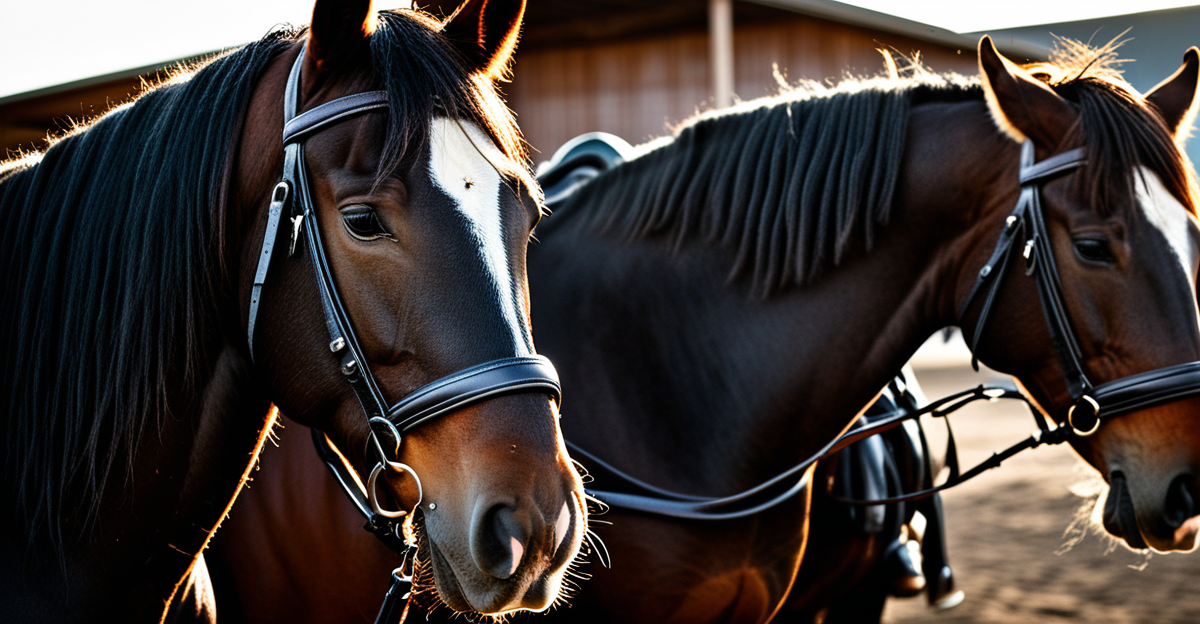Understanding the SIVEP process is key for businesses involved in the transit of horses and other animal products. With strict customs regulations now in place, accurate documentation is essential to avoid costly delays. This guide clarifies the SIVEP checks, including mandatory paperwork and logistical strategies for efficient crossings. Learn how to navigate this complex framework to ensure smooth transit and compliance while minimizing disruptions to your operations.
Overview of SIVEP and Its Importance for Customs
The SIVEP (Veterinary and Phytosanitary Inspection Office) plays a vital role in ensuring safe and efficient trade at borders, especially at key entry points like Calais. This office is pivotal in customs procedures for importing or exporting animal products. It ensures that products entering or leaving the UK comply with regulatory standards. Find more informations https://www.asalinks.eu/customs/animals-horses.
In parallel : Revolutionizing UK Financial Services: How Digital Transformation is Redefining Financial Management
SIVEP checks involve a thorough three-part verification process, including documentation validation, identity checks, and physical examination of goods by veterinary professionals. To streamline this process, accurate documentation, such as the Common Health Entry Document (CHED) and EU Sanitary documents, is mandatory. Incomplete or incorrect paperwork can lead to costly delays, emphasizing the importance of thorough pre-departure checks. Items subjected to these checks include not just animal products, but also live animals and feeds.
For businesses, understanding the SIVEP process is essential for minimizing transit times and avoiding additional costs. Efficient management of these checks ensures compliance and smoother transit across European borders.
Also to discover : Revolutionizing UK Financial Services: How Digital Transformation is Redefining Financial Management
The SIVEP Process and Customs Compliance
Three-Part Verification Process
The SIVEP (Veterinary and Phytosanitary Border Inspection Office) implements a rigorous verification process crucial for ensuring that all goods of animal origin comply with various regulations. This process begins with a documentary verification, which involves checking essential documents like the Common Health Entry Document (CHED). Next is the verification of identification requirements, which includes batch numbers and vital information such as animal passports. Finally, a physical examination is carried out by a trained veterinarian to ensure compliance with all sanitary and phytosanitary standards.
Types of Goods Requiring SIVEP Checks
Goods requiring SIVEP checks include live animals, products intended for human consumption like meat and dairy, and animal feed. Non-consumable items of animal origin also fall under the SIVEP’s scrutiny. Various documents, like sanitary certificates, are mandatory to facilitate customs clearance and prevent any delays.
Common Issues and Delays in Customs Processing
Incorrect or missing documentation is the primary cause of delays during customs processing. These inaccuracies can lead to costly delays, affecting the supply chain and increasing costs due to driver wait times. Ensuring all documentation is meticulously checked before departure is essential for efficient customs clearance, reducing delays and enhancing overall operations.
Travel and Transportation Logistics for Calais
Pre-Travel Documentation and Requirements
When planning your trip through the Eurotunnel, meticulous preparation is essential. A key part of this process includes gathering the necessary documentation, particularly for those transporting goods subject to SIVEP (Veterinary and Phytosanitary Border Inspection Office) checks. Required documents such as the Common Health Entry Document (CHED), EU Sanitary document (DSCE), and Movement Reference Number (MRN) should be in order before departure to prevent any customs delays. Fully understanding your travel needs and ensuring compliance with documentation requirements can notably reduce wait times associated with customs clearance.
Arrival Procedures and Customs Status Updates
Upon arrival at the Calais Eurotunnel, swift and orderly processing hinges on adherence to customs procedures. Vehicles, especially those carrying live animals and animal-based products, must undergo SIVEP checks that include thorough documentary, identity, and physical verifications. Drivers of such cargo must be prepared with mandatory certificates and follow guidance from customs agents to navigate these processes effectively. Regular status updates and communication with customs officials can further aid in maintaining a seamless transit.
Transportation Tips and Local Resources at Calais Port
Efficient navigation through Calais Port involves familiarity with local resources and regulations. It’s advisable to utilize the expertise of customs agents when managing complex transports, such as those involving live animals. Also, taking advantage of local transportation tips, assistance services, and micro-planning for high traffic periods can greatly enhance your travel experience.











